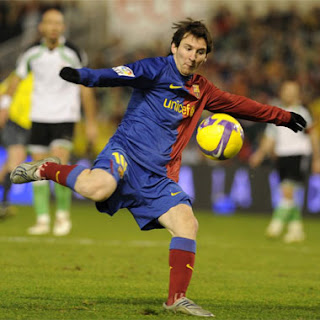To begin with, nature versus nature is a very controversial debate that has developed through the years. This is a term used in psychology related to whether heredity (nurture) or the environment (nature) most impact human psychological behavior. In my opinion, athletic ability uses a little bit of both, nurture and nature. You may be born with athletic characteristics and since a baby like playing soccer and other sports, which is my case. You can get your athletic ability by the environment in which you live in; if you live in a house where the rest of your family likes and does sports it is very probable that you are also going to like them. Also, I believe that with practice and perseverance you can become good at any sport you want.
Some scientist believes that genetics shape us in many ways including our athletic ability. Genetics have a say on strength, muscle size, lung capacity, flexibility, and endurance. Some people are born with a more of these components and they will have a superior possibility of becoming better athletes. Your genes may also determine how your body responds to training, diet and other factors. Genetically gifted athletes will have a much greater response to training and will have more efficiency than others. Some new researches show that single-nucleotide polymorphisms might explain why some people can reach higher levels of performance and become better athletes. This is the first evidence that might indicate that genes can affect athletic ability. Future research on genetics affecting athletic ability can help people to know who haves and does not have the possibility of becoming a good athlete.
Although there is some evidence that athletic ability can be affected by genetics; the environment also affects the athletic ability of a person. Nutrition and training can have a very important part in the career of an athlete. Many scientists think that “sport performance and sport expertise is entirely the result of hours spent in focused, effortful training rather than natural, inheritable traits.” Performance might be nothing more than a specific skill or psychological adaptation acquired through training. Athletic ability may also depend on when your training started in a specific sport. Another thing that might affect your athletic ability is how your parents and family feel toward sports, if they support them is very possible that you become god at them. Many examples of athletes that when born had many health complications make us believe that it is not the genetics of someone that make an athlete.
In conclusion, after doing my research I believe that nature and nurture both affect the athletic ability equally. You need both nature and nurture to become an excellent athlete and have a great career. Your genes, nutrition, training and many other aspects will make you a successful athlete. This as many other things in psychology has many theories and none of them can be proved so each and everyone opinions are in some way right and wrong. In my opinion nature affects in a 60% and nurture in a 40% because nature gives you your DNA which defines your muscle tissue, performance and efficiency. I really enjoyed researching about this topic because I would like to become a professional athlete and would like to know where do pro-players get their talent.
Sources: http://expertfootball.com/training/naturevsnurture.php
http://www.scientificamerican.com/article.cfm?id=a-gene-for-athleticism-hl
http://www.sportsci.org/jour/0101/wghgene.htm
http://sportsmedicine.about.com/od/anatomyandphysiology/a/genetics.ht




Este comentario ha sido eliminado por el autor.
ResponderEliminarI like your pictures! You were very clear in explaining about athletic abilities, and how they come from nature as well as nurture.
ResponderEliminarYour arguments are very interesting and you attack the topic very well. I now know that athletic ability is both nature and nurture. XD
ResponderEliminarI like the way you state your examples and ideas, I like how you say the Nature and Nurture are both important in sports, I think the same way.
ResponderEliminar